Hyaluronic Acid : Is it Worth All the Hype?
This post may contain affiliate links. That means that if you click on a link and purchase something I recommend, I will receive a small commission at no extra cost to you. As an Amazon Associate, I earn from qualifying purchases. This helps keep my website up and running and is very appreciated. Thank you for your support! Disclaimer
Good morning, In today’s article, I’m here to shed light on why I’m not a fan of using topical hyaluronic acid in skincare.
You see nowdays many media outlets don’t talk about this because they’re often sponsored by the skincare industry. Unfortunately, hyaluronic acid has become a popular ingredient in skincare products due to its supposed miraculous effects, leading to its widespread use. It seems like every product boasts about its inclusion of hyaluronic acid .
But the more you understand the ingredient lists, the more your mind will be blown because this bish is in literally everything even when not needed . So, buckle down, because today we’re gonna dive in and debunk all of the myths perpetuated by skincare influencers about hyaluronic acid.
If you don’t have time to read this post right now, why not save it for later?
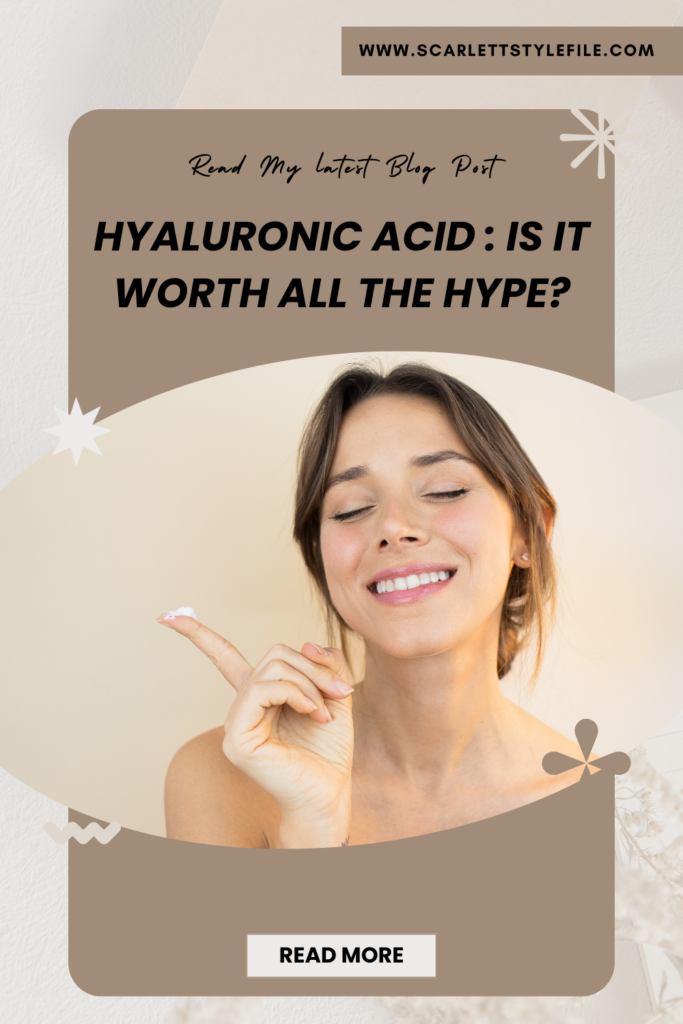
the Easy Beginner Guide on How to Use Retinol
what’s the buzz about ?
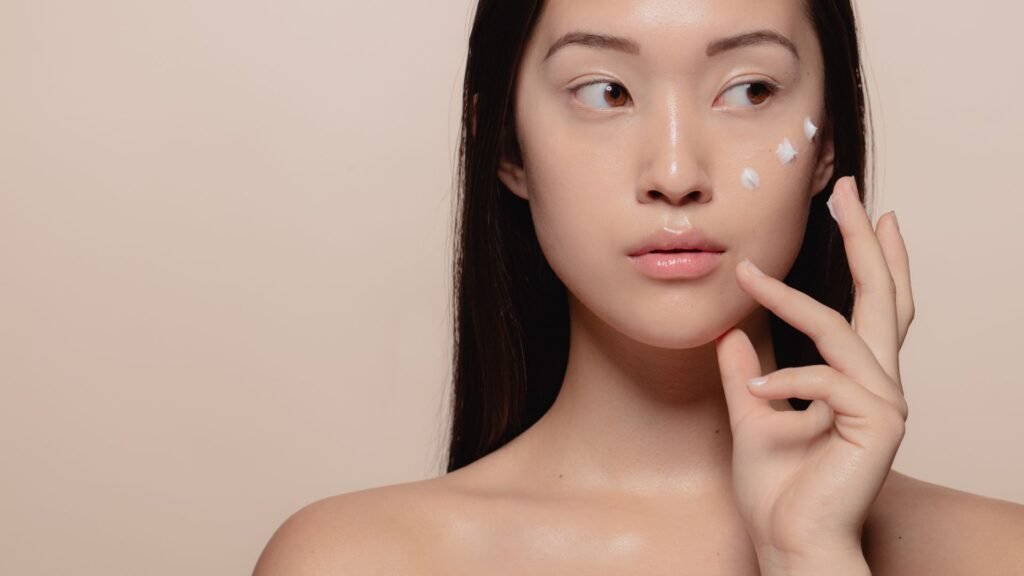
Hyaluronic acid has been a big deal in skincare for quite some time now. It’s like the golden ingredient that everyone in the beauty world keeps talking about, from editors to dermatologists to skincare influencers. They make it sound like it’s the answer to all your skin problems, like finding the fountain of youth or something. But let’s be real, it’s not magic. If it were, We’d all be looking like a newborn right now! (In the next few months, I’ll share some tips to help you look great in a form of a free eBook, but maybe not baby-fresh , So stay tuned).
Anyway, Hyaluronic acid is everywhere in skincare these days. It is supposedly one of the best moisturizers out there. Your lips will plump and practically explode if you apply it topically. It’s basically in every single step of your skincare routine so It’s really hard to run away from it.
Related : Unveiling The Secrets Of Retinoids: Your Path To Glowing Skin
But sometimes, the beauty industry can make you doubt yourself, questioning ” Do I really need it” or ” Is this actually that beneficial for me?” , “Why I don’t really see these miraculous results that everybody is claiming?”. and I get it I used to be skeptical too back when I was around sixteen or seventeen. I have naturally dry lips, especially in winter with indoor heating drying them out even more because I tend to lick my lips so it is really hard for me to keep them moisturized and in order to hold on to their water.
So my dad bought me a hyaluronic acid lip serum, I think it was from Neutrogena at the time. I applied it to my lips, but instead of feeling hydrated, my lips became even drier and flakier just 10 minutes later. And I thought to myself, ‘Okay this is really odd because as I know and as I learned in school and chemistry class, hyaluronic acid is supposed to be a humectant that holds onto water. So, I couldn’t understand why my lips were so dry?’
And so here I am, fast forward today, going to debunk all the myth of hyaluronic acid
the various names of hyaluronic acid?

So let me jog your memory back to highschool and start with a quick chemistry lesson . In vivo, in our bodies, HA is referred to as hyaluron, but it’s quickly renamed hyaluronic acid in skincare products.
Now, don’t be alarmed; it’s not an exfoliating acid or something that’ll peel your skin off. Its pH is acidic, hence the name “acid.”
Related : Unveiling The Power Of Vitamin C: Your Ultimate Guide To Glowing Skin
The synthesized forms of hyaluronic acid are often hydrolyzed, hence you might see hydrolyzed hyaluronic acid in ingredient lists, or sodium hyaluronate, which is the salt form. But here’s the kicker: Sodium hyaluronate is much cheaper than hyaluronic acid, so companies often use it to save a few bucks, not caring much about the quality they’re delivering.
So I did a little experiment and checked some products that I own. From hydrating cleansers (CeraVe Hydrating Cream-to-Foam Cleanser with Hyaluronic Acid ) to serums to mists ( INDEED LABS Me-NO-Pause Cooling Mist ) to sunscreen (EltaMD UV AOX Elements Broad-Spectrum SPF 50 ) and even products that claim to be pure hyaluronic acid (L’Oreal Paris Revitalift Derm Intensives Hyaluronic Acid Serum) , sodium hyaluronate was everywhere. But here’s the thing: just because it’s in everything doesn’t mean it’s the holy grail. You have to be an educated consumer to figure out if it’s truly beneficial for you or not.
what exactly is HA?
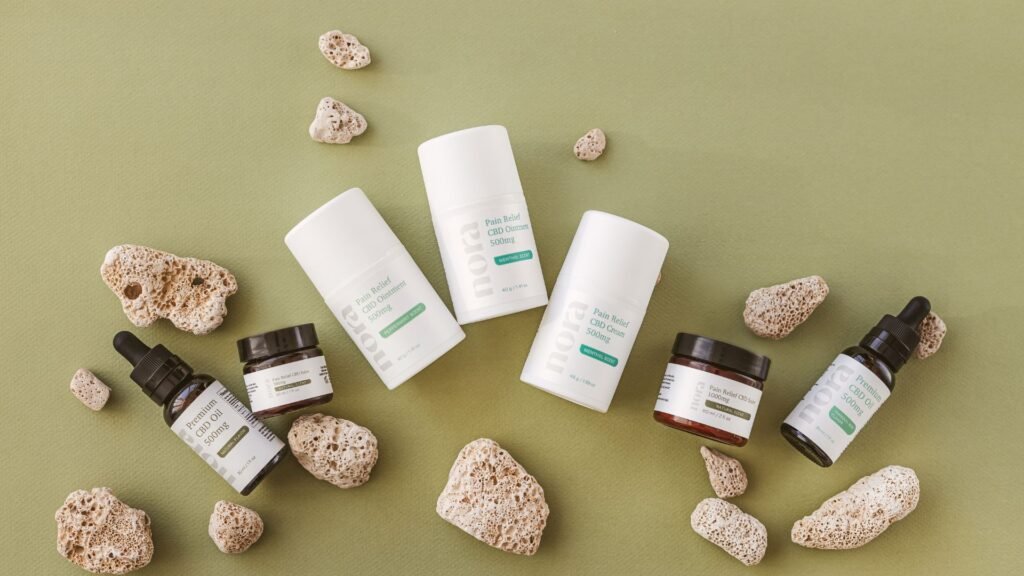
Now, what exactly is hyaluronic acid? It’s also known as a glycosaminoglycan (GAG), and if I had to relate it to something, it’d be the sugary carb of skincare. It’s like the sugar donut of the pastry section—sure, it might offer instant gratification, but in the long run, is it really beneficial? That’s the question.
If I had to assign it an astrological sign, I’d say it’s the Capricorn. Hear me out—Capricorns are known for being greedy, right? Well, hyaluronic acid attracts water like a magnet and holds onto it tightly, never wanting to let go. It’s like it controls the water concentration of your skin, for better or for worse. So, in essence, hyaluronic acid is the Capricorn of skincare—it attracts, holds onto, and sometimes, drowns in water, all in the pursuit of being loved and appreciated.
Related : Azelaic Acid: What Is It , How To Use It & What Are The Benefits?
Now Native hyaluronic acid (HA) is naturally present in our skin from birth. Think of your skin like a layer cake: there’s the top part called the epidermis, and underneath that is the dermis, which is softer and cushiony. Most of the HA hangs out in the dermis, giving your skin structure and making it look plump, bouncy, and juicy, like a donut.
Native HA is pretty amazing – it can hold up to a thousand times its weight in water! And where does it get all that water from? Mainly from what we drink and eat, which eventually ends up in our blood and then nourishes our skin from within. So, it’s crucial to stay hydrated throughout the day to keep your skin looking its best.
Like I said HA does more than just plump up your skin, it has a structural role in the extracellular matrix, so it gives your overall skin that bounce. But it’s super interesting because it also has a really important role when it comes to wound healing, inducing inflammation, allowing a cut or a wound to heal within, and by promoting what is known as angiogenesis, so increasing the blood supply and the superficial tiny blood vessels to a wound to give the blood to the wound so that the blood can heal and regenerate. So, that is the main role or roles of hyaluronic acid in vivo in our bodies.
does the size of hA matter ?

Yes, size matters, alright? To all you insecure men out there, I’m not talking about you, but size matters when it comes to hyaluronic acid.
And this is the dirtiest, biggest, not-so-little secret of the skincare industry because ultimately, it’s the size that dictates the function of the hyaluronic acid you’re using, okay? Most brands nowadays fluff and puff, touting super low molecular weight so it can penetrate deep into your skin, plumping you up like a puffer fish.
But here’s the truth: in its native state, HA is high molecular weight. Just like you can’t slap on collagen and expect to restore your skin’s collagen supply, the same goes for hyaluronic acid. Injectables won’t puff your face like a fish.
Related : 7 Ways To Boost Collagen: Dermatologist-Approved Secrets
High molecular weight HA, the kind in our skin, can’t be absorbed. So scientists break it down into low molecular weight HA. But here’s the kicker: it doesn’t pass your epidermis. It stays there, nowhere near your dermis where native HA resides.
debunking HA myths by real science
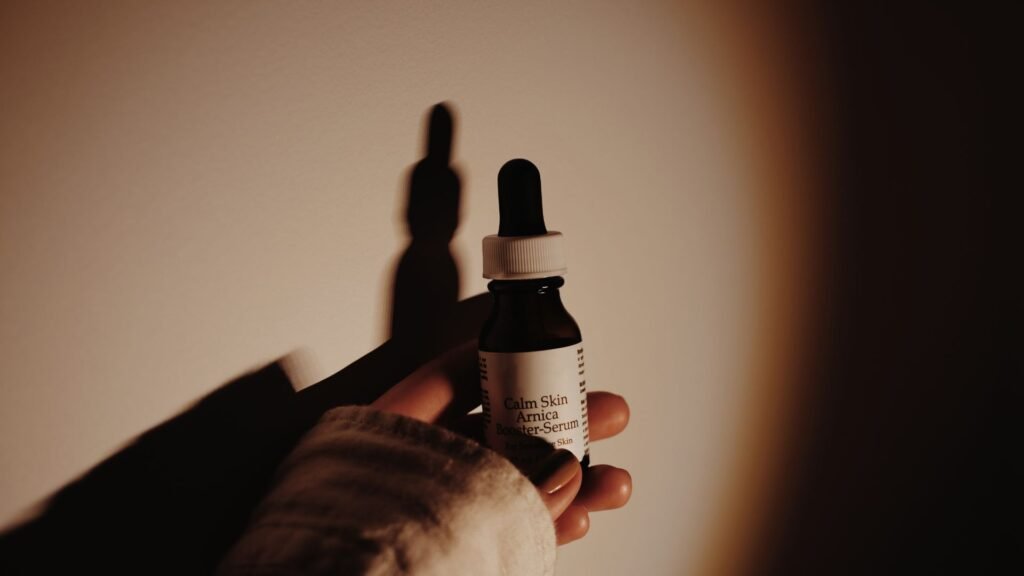
myth # 1 : penetrate deep into the skin
One common misconception is that hyaluronic acid penetrates deeply into the skin, even though it’s applied in small amounts. In reality, hyaluronic acid stays mostly on the surface of your skin, within the top layer called the epidermis.
myth # 2 : hA is super duper hydrating.
No, it’s not. Let’s actually consult the holy grail book of dermatology by Wolverton, Let me quote this: “Under low humidity conditions. Humectants, such as hyaluronic acid, draw moisture from the skin and increase trans epidermal water loss.” Meaning, if something is hydrating, it should decrease trans epidermal water loss. It should allow for water to remain within the epidermis and not be lost. So then they follow up the statement by saying, “for this reason, the humectant must be used in combination with an occlusive ingredient so that it doesn’t evaporate.”
So that comes back to my thinking: How can you claim then that an ingredient alone is hydrating? It’s absolutely not hydrating.
Related : Unveiling Niacinamide: Benefits, Formulation, and Skincare Options
In vivo native HA, which is high molecular weight HA, does hold up to a thousand times its weight in water; however, no synthesized HA has ever been proven to be able to hold its own weight a thousand times over in water. And that is a fact. So this false repetition of information needs to stop because it’s absolutely incorrect.
One big brand actually was faced with a class action lawsuit. It’s public knowledge. Peter Thomas Roth was faced with a class action lawsuit because of this particular reason. So I am always dumbfounded when I see skincare brands repeating these falsities.
So, where does hyaluronic acid (HA) get its water from? Well, there are two types: native HA and topical HA. Native HA, the high molecular weight type, gets its water from your diet and blood supply because it’s nestled in the deeper layer of your skin called the dermis. It basically feeds off the blood supply to stay plump and cushiony.
Related : The Ultimate Guide To Combining Active Ingredients: Retinol, Vitamin C, Niacinamide!
On the other hand, topical HA grabs water from the closest source it can find, which is your skin. It can’t penetrate deeply, so it draws water from your skin cells, making them puff up and smoothing out lines temporarily. But here’s the kicker: as the water evaporates from the HA over time, you end up losing hydration, and your skin can become dehydrated and shriveled.
I remember trying HA on my lips once. At first, they felt super plump, but within minutes, they shriveled up like a prune. It’s like the HA sucked the moisture right out of them. And this happens over time with HA – it can lead to more water loss from your skin.
Now, you might think, why not just seal it in with a moisturizer? Well, that’s a bit counterproductive. If HA is just going to sit on the surface and evaporate, causing water loss through your skin, what’s the point? It ends up fighting against your moisturizer, so what good is it doing for your skin anyway? Just some food for thought.
myth # 3 : hA is soothing.
I often hear is that hyaluronic acid is incredibly soothing and calming, But let me set the record straight—hyaluronic acid, especially the low molecular weight variant commonly used in skincare products, is not soothing at all. High molecular weight HA has been shown to possess anti-inflammatory properties, which can indeed calm the skin. However, it remains on the surface and doesn’t penetrate deeply.
Contrary to its soothing reputation, low molecular weight HA, the fragmented kind, is actually pro-inflammatory. When applied to broken or wounded skin, it breaks down within the dermis, triggering toll-like receptors that initiate inflammation to aid in wound healing. This form of HA also supports the growth of superficial blood vessels to nourish the wound for better healing. Therefore, claiming that low molecular weight HA is calming is contradictory—it’s inflammatory inducing, not soothing.
Based on observations from my fiancé, who has witnessed the effects on patients over time, excessive use of HA in various skincare steps can lead to increased dryness, redness, inflammation, and sometimes irritation of the skin. This is precisely why I felt compelled to address this issue in this article. The pervasive false marketing surrounding hyaluronic acid can be detrimental if people overuse it in every aspect of their skincare routine. And that brings me to my final point.
how to use HA ?

I don’t think HA is the devil despite all of this. I think if you have an event, a wedding, a red carpet , if you have anything you need to get Ready for a date, a special occasion, or a super Zoom event? Use it before that event; it will plump your face and give you a nice overall plumped appearance. But make sure you seal it in with something that is a strong occlusive, like a really good moisturizer or even a moisturizer with an oil.
If you are insistent that you cannot get rid of your HA, I am not going to fight you. But do me one favor and just try limiting one product within your skincare routine that has hyaluronic acid. Don’t use it in every single product, and don’t overuse it either because as you start to overuse it, your skin will get dehydrated in the process.
For instance, I know that the L’Oreal glycolic acid serum has a little bit of sodium hyaluronate in it. That’s the only product I’ll use at night that has it. During the day, I actually don’t use any products that have sodium hyaluronate or hyaluronic acid. I try to limit how much I’m using it throughout my skincare routine.
So, if you guys have that in mind, then you will be overall much better educated. And if you guys have been breaking out or feeling really red or inflamed or dry despite using hyaluronic acid, hopefully, this article opens up your eyes and explains to you the science behind why it’s not necessarily the best.
Lastly, I do prefer glycerin, tried and true, definitely a better humectant, smaller in size, has the ability to go deeper, and has not been proven to be inflammatory whatsoever. Just saying, we’ll save that topic for another day.
The Bottom Line
I hope you found this article helpful. And hyaluronic acid, I’m sorry, (I’m not) you’ve had your time in the sun and now it’s time for someone else t shine.
Feel free to leave any questions or feedback in the comments. I truly value my readers’ input.


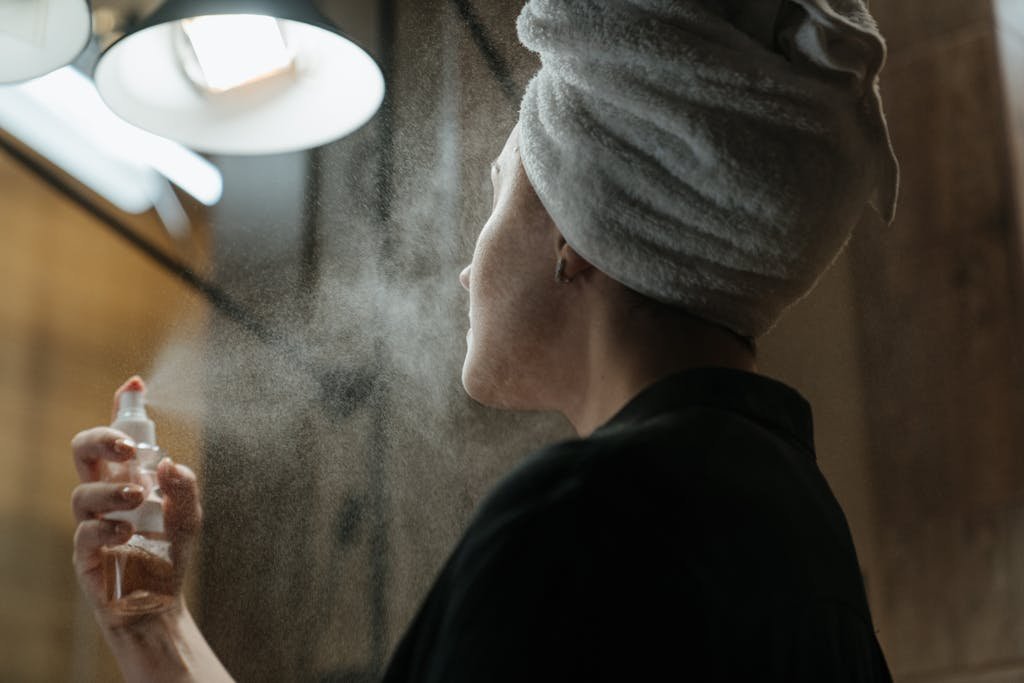

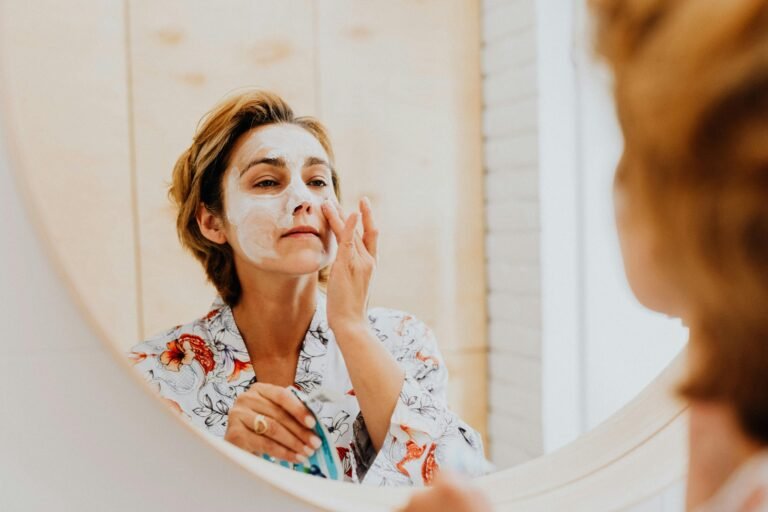
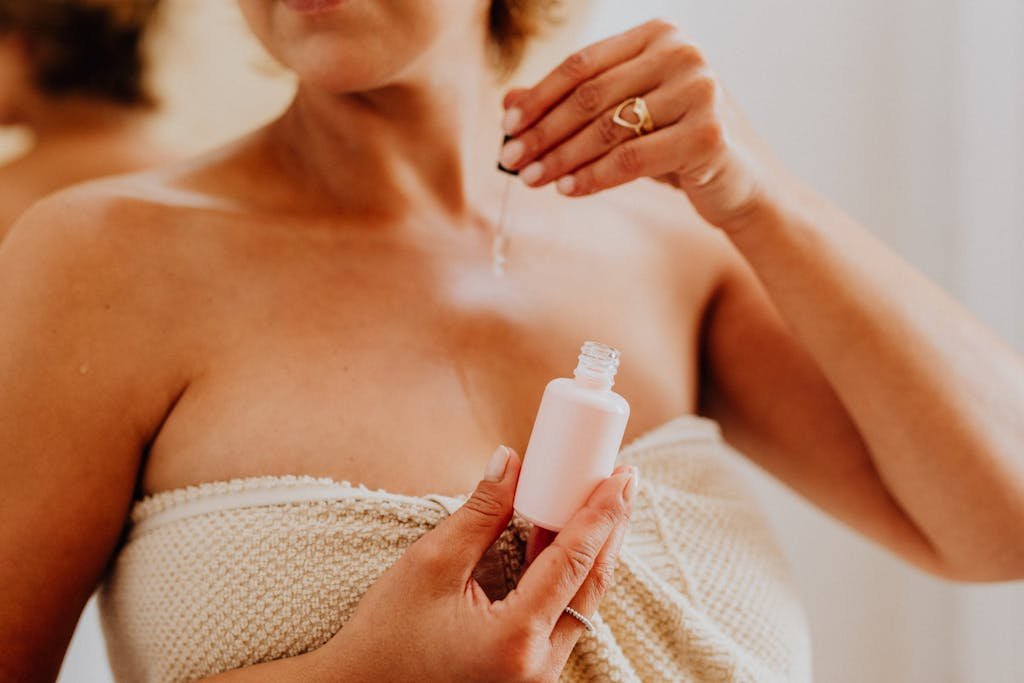
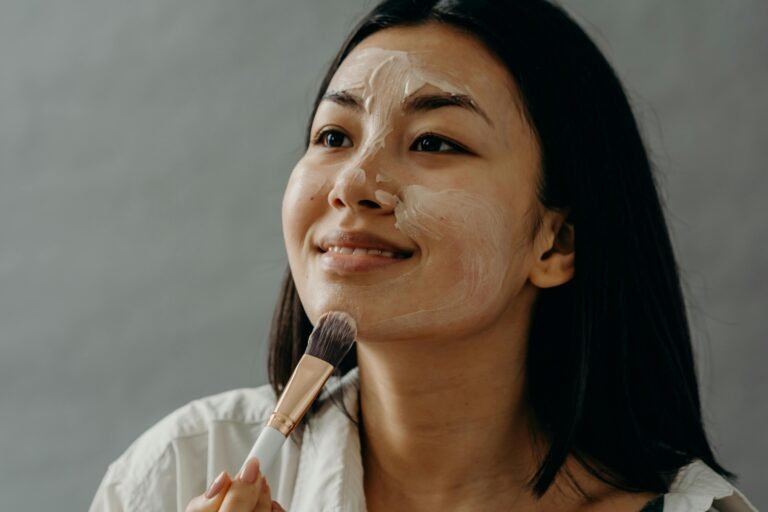
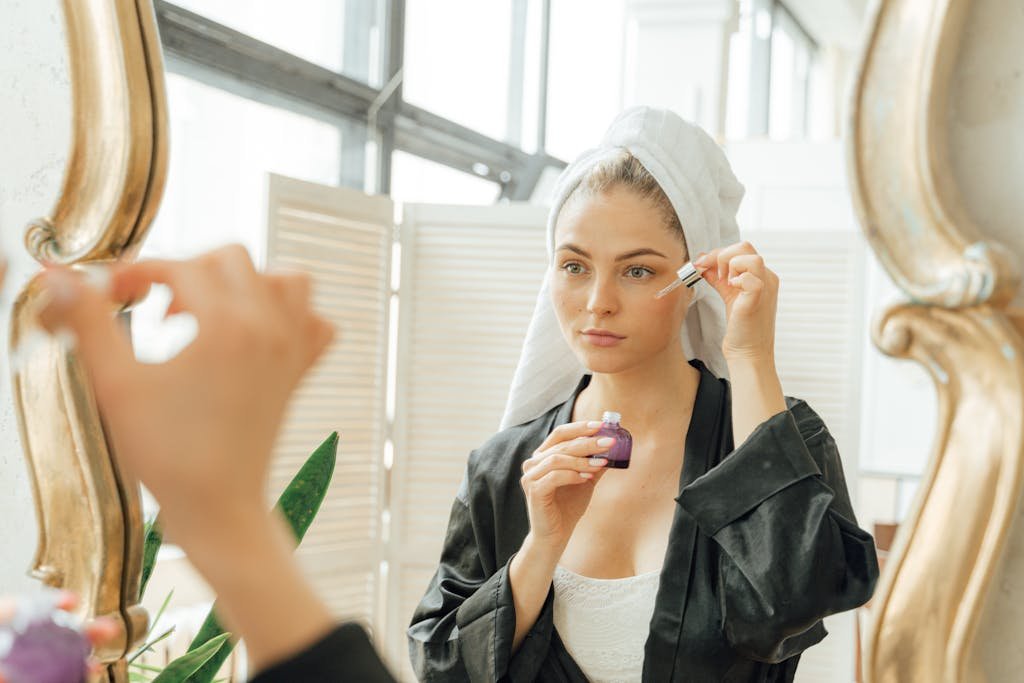
3 Comments